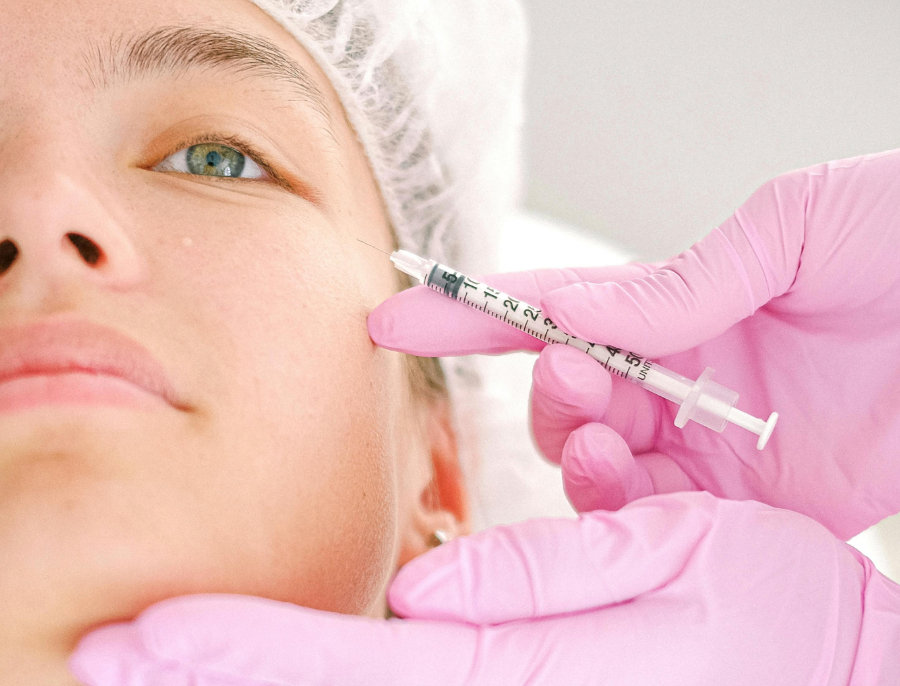Khloé Kardashian Shares How Brain Scans Changed Her Health Journey

Dr. Daniel G. Amen is a disruptor revolutionizing brain health. A psychiatrist, New York Times bestselling author, and founder of Amen Clinics, he advocates for a fundamental shift in how we treat brain disorders. His central argument: doctors should examine the brain before diagnosing or prescribing medication.
Having scanned more than 250,000 brains from people across 155 countries and working with numerous high-profile clients, Dr. Amen has built his reputation on the principle that psychiatric conditions require individualized treatment.
There is no universal solution for brain-related conditions like anxiety, depression, OCD, and ADHD, he maintains. “Treat the brain like an organ. Scan it. You don’t just try to drug the brain into submission. Getting the wrong medicine can disrupt your life in a very bad way,” he says.
Khloé Kardashian connected with Dr. Amen on her sister Kendall Jenner’s recommendation. Curious about the neurological impact of several traumatic events—a tragic car accident at 16, a slip in the shower, and a horseback riding incident—as well as the emotional trauma of her father’s death and public relationships, Kardashian underwent a brain scan. The experience was eye-opening, and now, Kardashian is passing on what she’s learned by welcoming Dr. Amen on Khloé In Wonder Land to unpack brain health and trauma.
Why brain health matters
According to Dr. Amen, the medical field’s resistance to brain scans stems from its traditional diagnostic approach: identifying conditions based on symptoms rather than biological data.
“Psychiatrists are the only medical professionals who never look at the organ they treat. That’s insane! No one is looking at the brain,” he adds. “Hundreds of thousands of doctors are doing the wrong thing. The outcomes in psychiatry today are no better than they were in the 1950s. We should be ashamed.”
Dr. Amen argues that without examining the brain, it’s impossible to determine which regions are affected or why. Does depression stem from a car accident or does your brain work too hard because you experienced sexual assault? Perhaps there are environmental factors, like living in a mold-filled home.
What’s more interesting, says Dr. Amen, is that the medical field knows they are getting brain health wrong. “The status quo notices that there’s a problem, but they only make small changes because they are protecting the money. If it disrupts someone’s money, and I disrupt the pharmaceutical industry, then they try to kill you. It’s just normal.”
Preventing Alzheimer’s disease and dementia
Brain health becomes increasingly important as we age. According to Dr. Amen, if you live to 85 or older, you have a 50 percent chance of developing Alzheimer’s disease and another form of dementia.
The encouraging news is that Dr. Amen considers these conditions largely preventable by addressing 11 key risk factors. Excess weight, for example, correlates with reduced brain size and function. Diabetes increases the likelihood of Alzheimer’s disease and dementia. Lyme disease is another risk factor.
How alcohol affects your brain
Dr. Amen cites the detrimental effects of alcohol on the brain and its link to increased cancer risk. He says he constantly works with clients whose lives have been devastated from drinking alcohol. “Anything that increases the risk of cancer by seven times, I’m against,” he explains. “Ask yourself: ‘What do you really want?’ I want energy, focus, and passion. Well, alcohol just doesn’t fit.”
Recovery is possible, however. “Even if you have been bad to your brain, you can make it better,” he says. Dr. Amen reports that 80 percent of his clients—including professional football players with “bad brains”—have show improvement after following a rehabilitation program.
The problem with the ‘mental illness’ label
After his ex-wife’s suicide attempt early in their marriage, Dr. Amen developed an aversion to the term “mental illness.”
“It’s shaming. It’s stigmatizing. Nobody wants it. What if mental health was really brain health? And that’s the revolution I’m trying to create,” he says.
Brain health is often connected to other parts of the body. For example, Dr. Amen says that in the parts of the country with the highest percentages of Lyme disease, it matches the regions with high rates of schizophrenia diagnoses.
Luckily, psychosis can be reversed, according to Dr. Amen. “If you are psychotic, it means you have lost touch with reality—and that’s a brain dysfunction.”
The future of brain health
So why aren’t more people talking about brain health? It’s plain and simple. Dr. Amen says it’s because it’s not something you can see. “You can see wrinkles in your skin, and fat around your belly, and you do something when you’re unhappy with that,” he says. “The brain is one of the only organs we do not screen.”
Dr. Amen envisions a paradigm shift where brain health receives appropriate attention and resources, rather than funneling money into the existing system of writing prescriptions without brain scans. A scan initiates a relationship with your brain, Dr. Amen says. “It starts a love affair with your brain. When you fall in love with your brain, you realize you have to treat it better.”




















Leave a Reply